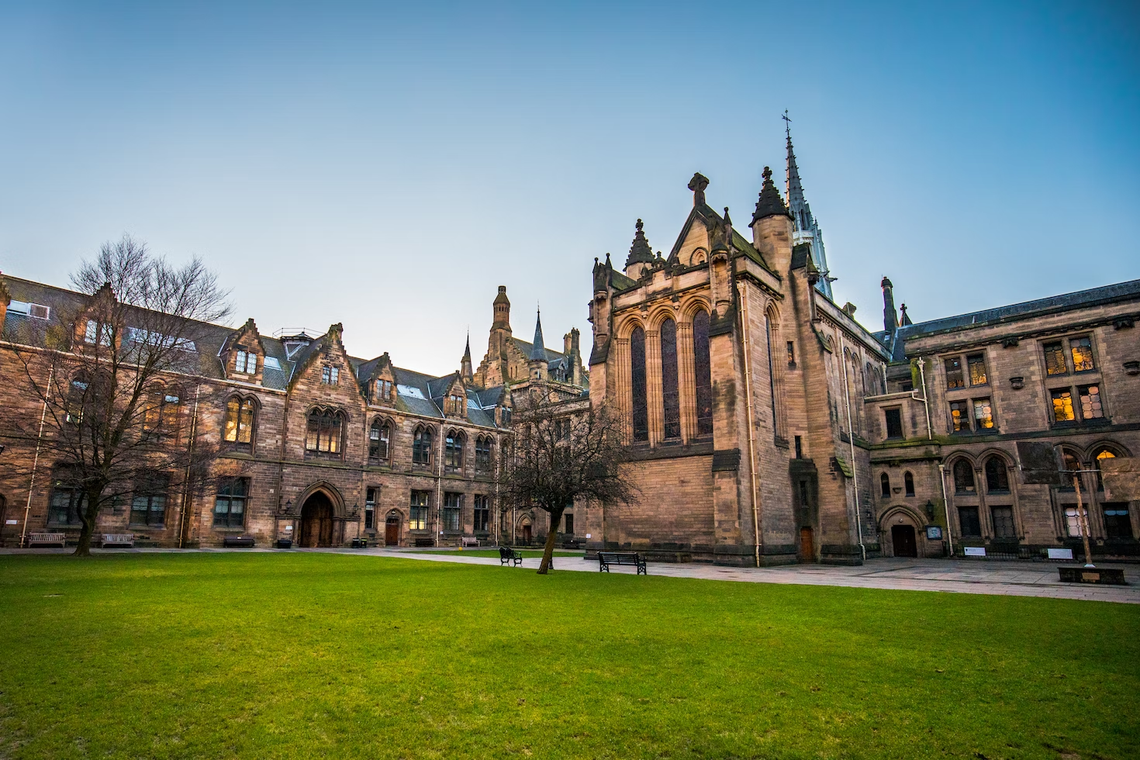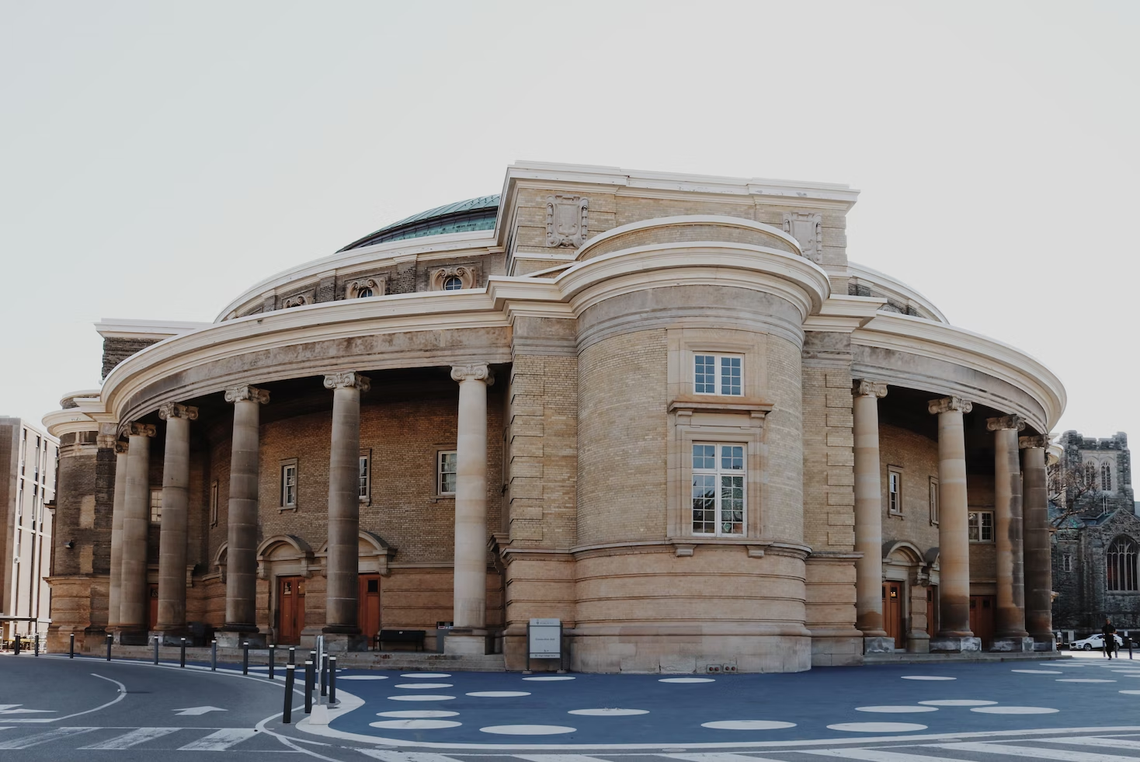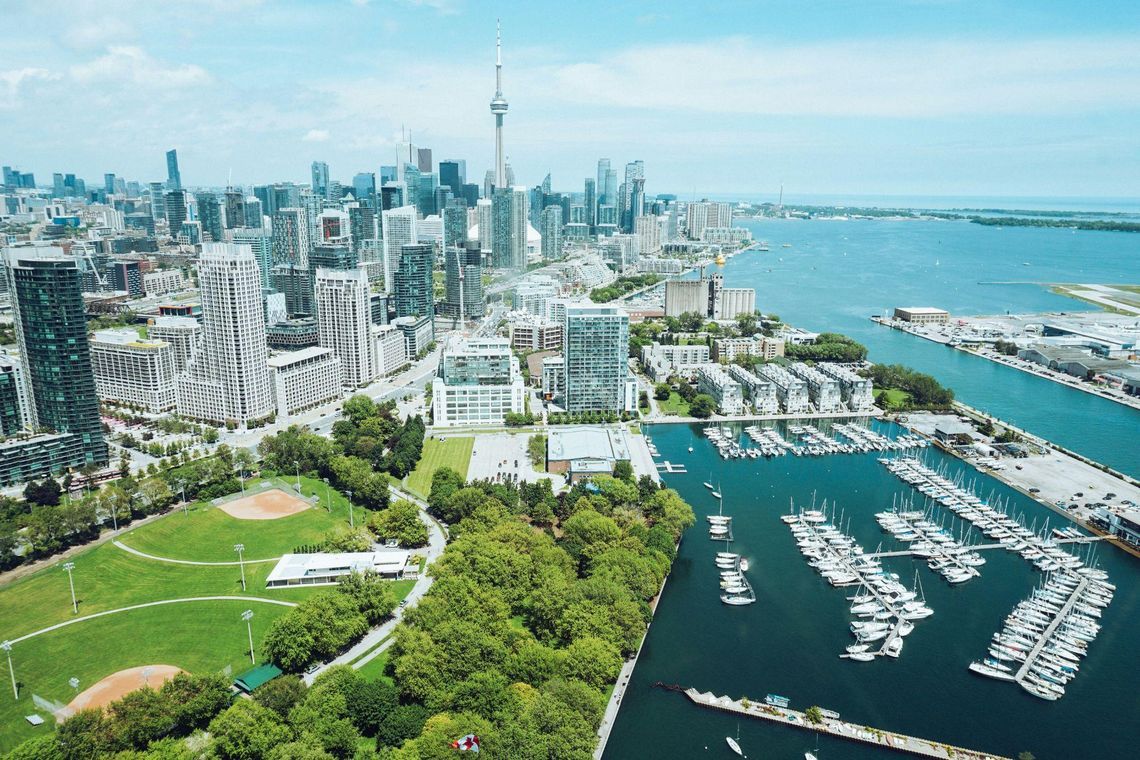EC Montreal
| Enrollment | 102USD |
| Placement | 172USD |
| Accommodation | 324USD/week |
Article score: 5 out of 5 (2 reviews)
Language courses in Canada are suitable for those who, in between classes, would like to look at Niagara Falls in Ontario or ski down the snowy mountains in Vancouver. In addition, it is a relatively cheap option among English-speaking countries, and the courses themselves can be combined with part-time work.
Free consultation





Language courses in Canada are suitable for those who, in between classes, would like to look at Niagara Falls in Ontario or ski down the snowy mountains in Vancouver. In addition, it is a relatively cheap option among English-speaking countries, and the courses themselves can be combined with part-time work.

| School | Program | Weeks | Tuition fees/week | Cities | Homestay | Living in a residence |
|---|---|---|---|---|---|---|
| LSI | Afternoon 10* | 1-11 | 180-185 USD | Toronto, Vancouver | 210 USD | 550 USD |
| General 20* | 1-11 | 345 USD | ||||
| Intensive 24 | 1+ | 320-395 USD | ||||
| Pathways | 12+ | 340-405 USD | ||||
| Academic English | 12+ | 340-405 USD | ||||
| TOEFL / IELTS | 1+ | 340-430 USD | ||||
| One to One Lesson | 1+ | 475-4,750 USD | ||||
| Medical English | 1-8 | 395-430 USD | ||||
| ILAC | General English | 2+ | 325-380 USD | Toronto, Vancouver | 220-270 USD | 325-460 USD |
| Cambridge English | 2 + | 380-430 USD | ||||
| IELTS and TOEFL | 2+ | 315-370 USD | ||||
| Pathways | 2+ | 315-430 USD | ||||
| Business English | 2+ | 315-430 USD |
*number of lessons per week
| Type of program | Intensity | Group | Min. language level | Min. cost | Avg. cost |
|---|---|---|---|---|---|
| General English | 20-30 | 10-15 | Beginner | 315 USD | 380 USD |
| Semi-Intensive English | 24 | 10-13 | Beginner | 310 USD | 340 USD |
| Intensive English | 25-30 | 10-13 | Beginner | 345 USD | 410 USD |
| Academic English | 25-30 | 10-13 | Beginner | 300 USD | 390 USD |
| One-to-One Lessons | 5-50 | 1 | Beginner | 85 USD/session | 90 USD/session |
| English for Business | 25-30 | 10-13 | Intermediate | 315 USD | 400 USD |
| Cambridge Exam Preparation | 20-30 | 10-13 | Intermediate | 320 USD | 420 USD |
| IELTS/TOEFL Preparation | 20-30 | 10-13 | Intermediate | 280 USD | 410 USD |
| Pathway | 25-30 | 10-15 | Intermediate | 315 USD | 370 USD |
| Summer / Winter / Spring | 15-20 | 10-15 | Beginner | 1,800 USD/course | 2,100 USD/course |
| English for Academic Purposes Program | 20-25 | 5-15 | Beginner | 2,800 USD/semester | 3,500 USD/semester |
More about the types of language courses
The most common courses are General English, Semi-Intensive English, and Intensive English, which can be found at almost every language school. These are standard programs for learning a language, without additional features. They differ from each other only in the cost and number of hours per week.
One-to-One — individual courses that are expensive but effective. The curriculum for these courses is completely flexible, with the topics of the lessons being discussed in advance with the teacher.
Exam preparation — this type of program includes preparation for the IELTS, TOEFL, or Cambridge international language exams. Such courses are aimed at those students who already know the language at the B1-B2 level, but are not confident enough in their abilities. On average, students with a B2 level (55-74) improve their results by 10 points over the course of 8 weeks, and students with C1 (75-91) — by 5[3].
Academic English — in this course, students memorize complex academic vocabulary and terms, learning to understand and correctly build sentences in a scholastic format. In addition, many schools conduct similar programs in conjunction with universities. Students not only study the language, but also attend standard classes at universities.
Business courses / English for Work — business English courses for those who want to work abroad. You will master professional vocabulary, learn how to write resumes and pass interviews, and practice participating in meetings and conferences. This type of program can also include English for Specific Purposes — business English for specialties in specific areas: medicine, law, programming, and so on.
Pathway — a course that is similar to Academic English in many ways. Students learn academic vocabulary and grammar, prepare for university studies and exams, and attend university classes in their future field. This program has one advantage that has made it one of the most sought after among students — the opportunity to enroll at a university without language certificates. However, this is only available at partner universities of the language school, so we recommend finding out about them in advance.
Summer / Winter / Spring — short (3-5 weeks) seasonal programs, common among teenagers from 8 to 17 years old. There are joint programs for children and parents, and separate programs for adults. Students of such programs visit attractions, museums, theaters, and go shopping, camping, and rafting.
English for Academic Purposes Program (EAP) is available at many Canadian universities. This is similar to the Pathway program, but with a more flexible system than typical preparatory programs.
You can enter these courses even with basic English skills[4]. Usually, the program is divided into 5-9 levels lasting from 8 weeks. With a more advanced level, you not only study the language, but also go to lectures and seminars in order to adapt to the university environment.
At the end of the EAP program, you can enter a university without international language proficiency certificates, but only where you took the course.
Also, universities have Foundation programs that are designed for applicants who do not pass the language and grade requirements. These are fixed annual programs that prepare students for university studies. Here, they cover not only the language, but also subjects from the curriculum for the future field of study. A B1 level of English is required for admission, but not at all universities. More details can be found in this article.
Universities also have standard language courses, such as General English, Business, and Summer / Spring programs. However, fewer of them exist than at private language schools. Professional English is more common for legal, medical, technical, and other specialties. Universities also offer preparation for IELTS and TOEFL exams.

First, check the accreditation of the language school. This is an important condition for the visa process. In addition, accreditation is one of the indicators for course quality. Canada has an official catalog with 225 accredited language schools. All of them are strictly selected according to the following international standards:
Admission begins with the collection of documents, which include a completed application form, passport, and receipts of the course payment and registration fee. At many schools, you need to pay a deposit. All documents can be attached to the application on the school website or sent by mail. After enrollment, the school sends an official invitation by e-mail, which will be needed to apply for a visa.
For university courses, admission is no different from that of private language schools. Only advanced programs (Pathway, EAP) require a certificate confirming the required level of English.
Most Canadian schools practice a communicative approach to teaching in the context of real life situations. Vocabulary and topic are selected according to the group level, student interests, or the university program. All courses are held in English regardless of level. Using this method, students learn new vocabulary more effectively and get rid of the language barrier.
Schools and university centers divide students according to their English level, so we recommend you to take the entrance test in advance. Some programs conduct additional interviews (most often Pathway programs).
| Accommodation options | Meals | Number of people per room | Avg. cost |
|---|---|---|---|
| Host family | Only breakfast / breakfast + dinner | 1-2 | 176 USD/week. |
| School residence | Breakfast (optional) | 1-3 | 233 USD/week |
| Rental housing | Covered by the student | 1-3 | 832 USD/month |

| Expenses | Avg. cost |
|---|---|
| Embassy consular fee | 72-115 USD |
| Registration fee | 115 USD |
| Medical insurance | 15 USD/week |
| Study materials | 43 USD/semester |
| Delivery of an invitation by express mail | 50 USD |
| Airport transfers | 79 USD |
| Special menu | 18 USD/week |
To enter Canada, you will need one of two documents, depending on the duration of the course:
Regardless of the visa type, you must first enroll in a language school and pay the full cost of the course. The school will send you an invitation letter that needs to be brought to the visa center or submitted on the immigration office website along with the rest of the documents. For both application forms, you will need to submit biometric data and undergo a medical examination after processing the application.
If you wish to apply online, you must register for a secure IRCC account. It is used to access immigration websites of the Canadian government. With this account, you can apply for a visa, monitor its status, and update your personal data.
You can register by creating a new account or logging in using a Canadian partner bank.
You may be invited for an interview at the consulate. They will ask questions about your purpose for visiting and the presence of property or close relatives in the country. You must prove your firm intention to return to your home country after completing courses in Canada, otherwise you may be denied a visa. A certificate of employment with a description of income and property documents may come in handy, but verbal assurance that you have no intention of immigrating to Canada is usually sufficient.
You can work part-time — up to 20 hours per week and full-time during holidays.
Students of short-term courses (less than 6 months) must obtain a work permit in order to be admitted for employment. In Canada, the processing time is about two weeks. Study Permit holders can work without this document.

Items 1-6 of 28
Advanced search| Enrollment | 102USD |
| Placement | 172USD |
| Accommodation | 324USD/week |
| Enrollment | 130USD |
| Placement | 220USD |
| Accommodation | 295USD/week |
| Enrollment | 130USD |
| Placement | 220USD |
| Accommodation | 295USD/week |
| Enrollment | 130USD |
| Placement | 220USD |
| Accommodation | 335USD/week |
| Enrollment | 185USD |
| Placement | 240USD |
| Accommodation | 330USD/week |
| Enrollment | 185USD |
| Placement | 240USD |
| Accommodation | 450USD/week |
An internationally recognized school in the education industry. For the quality of teaching and service, it has received more than 25 national and international awards (Star Awards, Consumer Choice Award, Japan Best School Award, and others).
It also partners with 70 Canadian colleges and universities, such as Brock University, Columbia College, and Yukon University. At the end of the Pathway program, students can enter one of these universities without TOEFL or IELTS certificates.
You can study the following programs:
The LSI Education network was founded in 1965. Now, it includes 14 language schools around the world: in the UK, US, Canada, Malta, New Zealand, Australia, France, and Switzerland.
In Canada, there are LSI schools in Toronto and Vancouver. Both are located in the city center. During their free time, students engage in various activities: excursions in the city, museums, or Niagara Falls; visits to cinemas, musicals, theaters, football matches, and skating rinks.
LSI offers language exam preparation programs, General English with low and high intensity, individual programs, Business English, teaching courses, and university preparation.

| Population | 2731571 |
| Number of universities and colleges | 30 |
| Average cost of living (food + housing) | 2,079 USD/month |

| Population | 2581000 |
| Number of universities and colleges | 12 |
| Average cost of living (food + housing) | 2,079 USD/month |

| Population | 1762949 |
| Number of universities and colleges | 23 |
| Average cost of living (food + housing) | 1,434 USD/month |
60+ countries
we work with
$1,000,000 saved
by students through scholarships
6,400 offers
our students got